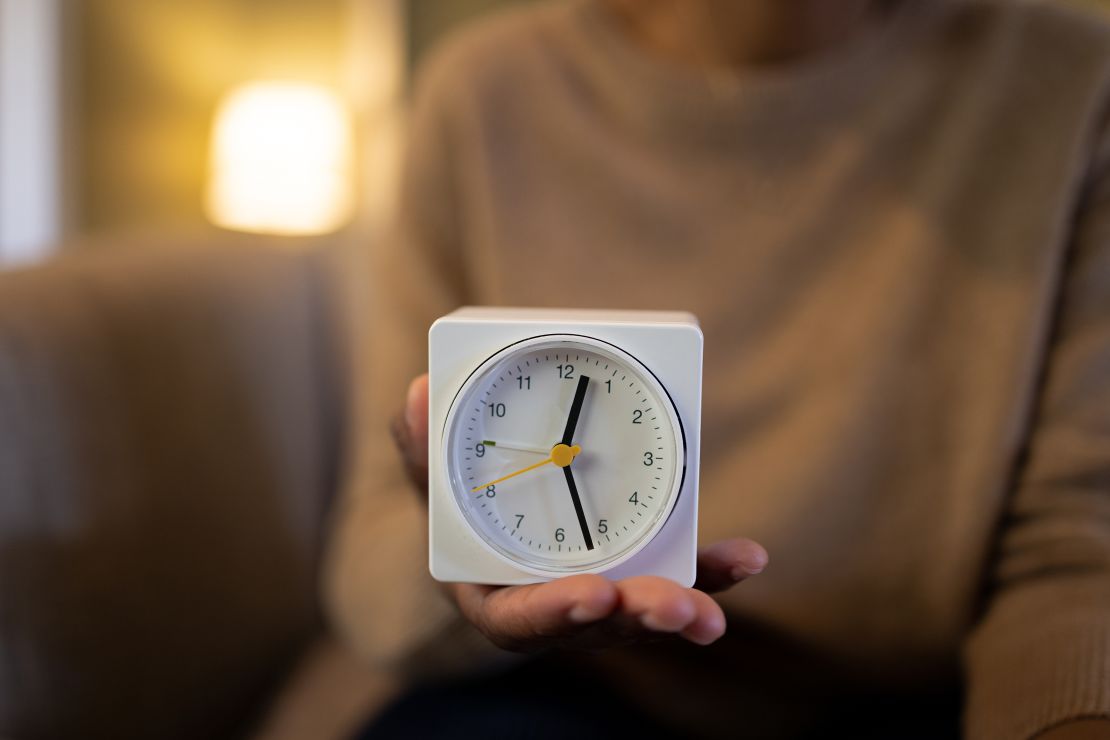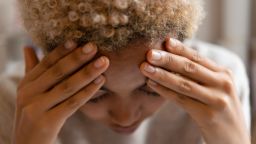Sign up for CNN’s Sleep, But Better newsletter series. Our seven-part guide has helpful hints to achieve better sleep.
When the clock is set back, does your world get turned a little upside down?
Daylight Saving Time will end on Sunday, November 5, moving the clocks in most US states back an hour – and that is no small thing for our health, according to Dr. Rajkumar Dasgupta, associate professor of clinical medicine at the University of Southern California Keck School of Medicine in Los Angeles.
He shares what to do for your health during the time change and how to soften the blow.

This conversation has been edited and condensed for clarity.
CNN: What kinds of health problems do you anticipate when the time changes?
Dr. Rajkumar Dasgupta: Daylight Saving Time ends soon, and while most of us welcome the extra hour of sleep, for some people the time change literally causes headaches.
The end of Daylight Saving Time is typically a trigger for cluster headaches. Cluster headache attacks can occur every day for six to eight weeks and then go away in a cluster cycle. The theory is that you can actually trigger a cycle by switching the time with Daylight Saving Time.
The connection between the time change and cluster headaches is that the portion of the brain that is also the generator for cluster headaches is also the portion of the brain that manages our circadian rhythms, which is located in the hypothalamus.
Also, a lot of migraine sufferers usually will have a little bit of sleep deprivation, or their sleep is affected by this change, so they’ll see an increase in headache frequency during that period.
CNN: Why does Daylight Saving Time have such an impact?
Dasgupta: Despite being a seemingly small shift, DST can significantly impact our circadian rhythm, which regulates our sleep-wake cycle.
Sleep is very individualized. Not everyone’s going to be equally affected by the change in our circadian rhythm. It’s important to realize that it’s not just Daylight Saving (Time) changes that can trigger these attacks, even changing time zones can trigger cluster headaches.
CNN: Should we worry about getting depressed as it gets darker out?
Dasgupta: The end of Daylight Saving Time brings about reduced light and shorter fall and winter days – and this change may increase Seasonal Affective Disorder, a type of depression triggered by the changing of the seasons and waning daylight.
It’s well documented that (the time change) does not directly cause mental health conditions, but it definitely can really do a number on people with preexisting conditions.
I don’t want anyone to feel that they need to suffer or they need to actually live with their mood not going in the right direction. If you notice a shift in your mental health, particularly if it affects your quality of life, always contact a healthcare provider.
CNN: Are there any populations who should be more mindful of the time change?
Dasgupta: Individuals with Alzheimer’s and dementia are particularly vulnerable to sleep disturbances, and the disruption caused by DST can exacerbate their symptoms.
These individuals often experience disrupted sleep-wake cycles due to cognitive impairments, leading to irregular sleep patterns and daytime drowsiness.
The connection between Daylight Saving Time and sleep disturbances in people with Alzheimer’s and dementia is particularly concerning, as sleep plays a vital role in cognitive function and memory consolidation. Sleep disturbances can exacerbate the cognitive decline associated with Alzheimer’s and dementia, making it even more difficult for individuals to perform daily activities and maintain independence.
CNN: What can we do for people who are more vulnerable?
Dasgupta: I would say just being aware of these things. Of course, when you have poor quality and quantity sleep, it can predispose you to things like falls — and we never want anyone to fall.
Be more cognizant around that time. If you are a primary caregiver or just someone who’s visiting a loved one who has Alzheimer’s, be aware of these things.
CNN: How can we protect ourselves from the impact of the time change?
Dasgupta: That’s going to be slowly adjusting your schedule, doing things that will maybe help out that transition. Getting exercise, spending time outside in the morning, and light therapy can be helpful strategies during the fall and winter.
I think it’s also very important that people – specifically talking about migraines, it’s just unfortunate that this is one of the triggers – twice a year have your medications ready.
No matter what we’re talking about, whether it’s your mood or your headache, if you notice that you’re getting a worsening headache, it’s not stopping, the usual medications are not working, go to your healthcare provider right away.





